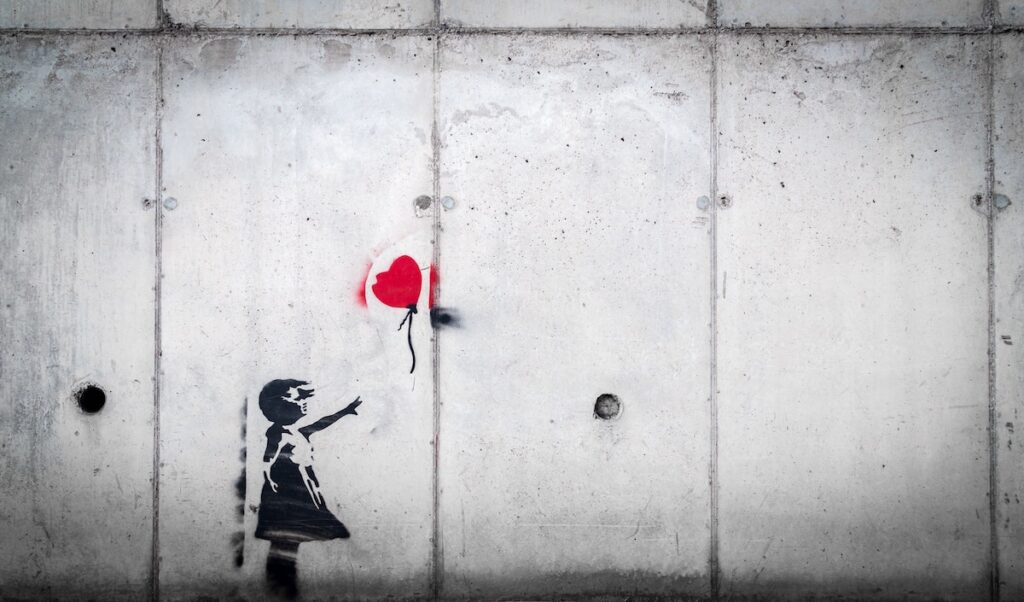Over the years I’ve come to really appreciate the liturgical calendar. I grew up in a church that didn’t emphasise the seasons of liturgy, but at some point during university I began to practice its rhythms. It gave context to the holidays I absentmindedly celebrated as a child. Over the last year, it has created a sense of movement and change during a year where the rest of life feels like it’s moving in slow motion.
I don’t think I had ever looked forward to an Advent season more than I did this past December. How much more deeply words like “longing” and “anticipation” resonate with us amidst a pandemic. The hope that Christmas brings of an incarnational God was truly a bright light in the darkness of winter.

But I’ll be honest, these were not my feelings going into this season of Lent. Two months into a national lockdown where we’re already being asked to give up so much, after losing my mother last month, and still adjusting to life in a new country, what else was there to give? This is something that has not been felt by just myself, but a sentiment shared by others as well. Many of us have found ourselves asking, “God, what else is there?” And that’s a fair question and it’s okay to ask it. Something I find myself repeating is that God is big enough for those questions and He welcomes them as they draw us to Him.

Suffering and sacrifice have been topics I’ve dwelt on more than usual over the last year. And I would like to invite you to do something with me, if you haven’t already. I want you to really consider the way you understand those two words and your disposition towards them. We read verses like that in 1 Thessalonians 5:18 that tell us to “give thanks in all circumstances,” or “we rejoice in our suffering” as it says in Romans 5:3. But what does that truly look like? I’ve always thought it a comfort that you share with those who are going through a tough time. Or even the realistically shallow idea that because God is where your joy is found, the hard times won’t seem hard. But we all know that’s not what happens. Hard times are still hard. While well intentioned, I believe those interpretations can firstly fall short but even more so that they can still point us towards our own circumstances. Because tough times still come, and when we can’t immediately give prayers of thanksgiving in the midst of them, it feels like a failure. We have the temptation to rush through seasons of grief or suffering so that we can once again be filled with joy.
I want you to really consider the way you understand those two words—suffering and sacrifice—and your disposition towards them.
But I think we’re missing an opportunity. I’ve often heard believers compare our suffering to that of Jesus, which is of course incomparable. We do it as a well-meaning reminder that we will never experience such heartbreak and that God has felt everything that we do. And while true, that’s only one side of the coin. God does and has felt all that we do. But when we suffer, we also get to feel what He does. We get to commune with God in a new, deep, difficult, and beautiful way. We get a glimpse of what Jesus experienced, what the God of the universe, Creator of all has been through. It truly is a privilege, not because it is easy, but because God, who loves us and wants to know us, wants us to know Him too. He lets us see Him and shares an intimate moment of vulnerability as we experience heartache. We don’t have to rush away from it, because when we lean into it, He draws us near and we learn what it means to give our burdens to Him. How much sweeter is anticipating the resurrection at Easter after a season of sacrifice? Because suffering, as we know, is not the end of the story.
But rejoice inasmuch as you participate in the sufferings of Christ, so that you may be overjoyed when his glory is revealed.
1 Peter 4:13 (NIV)
We don’t get one without the other, we get them both; the sacrifice and the salvation that follows.
This year, as we anticipate the light in the darkness that is the resurrection of Jesus Christ, let us not rush out of where we are right now, in this very moment. May we instead lean in, and in doing so, lean straight into the arms of our Saviour.
